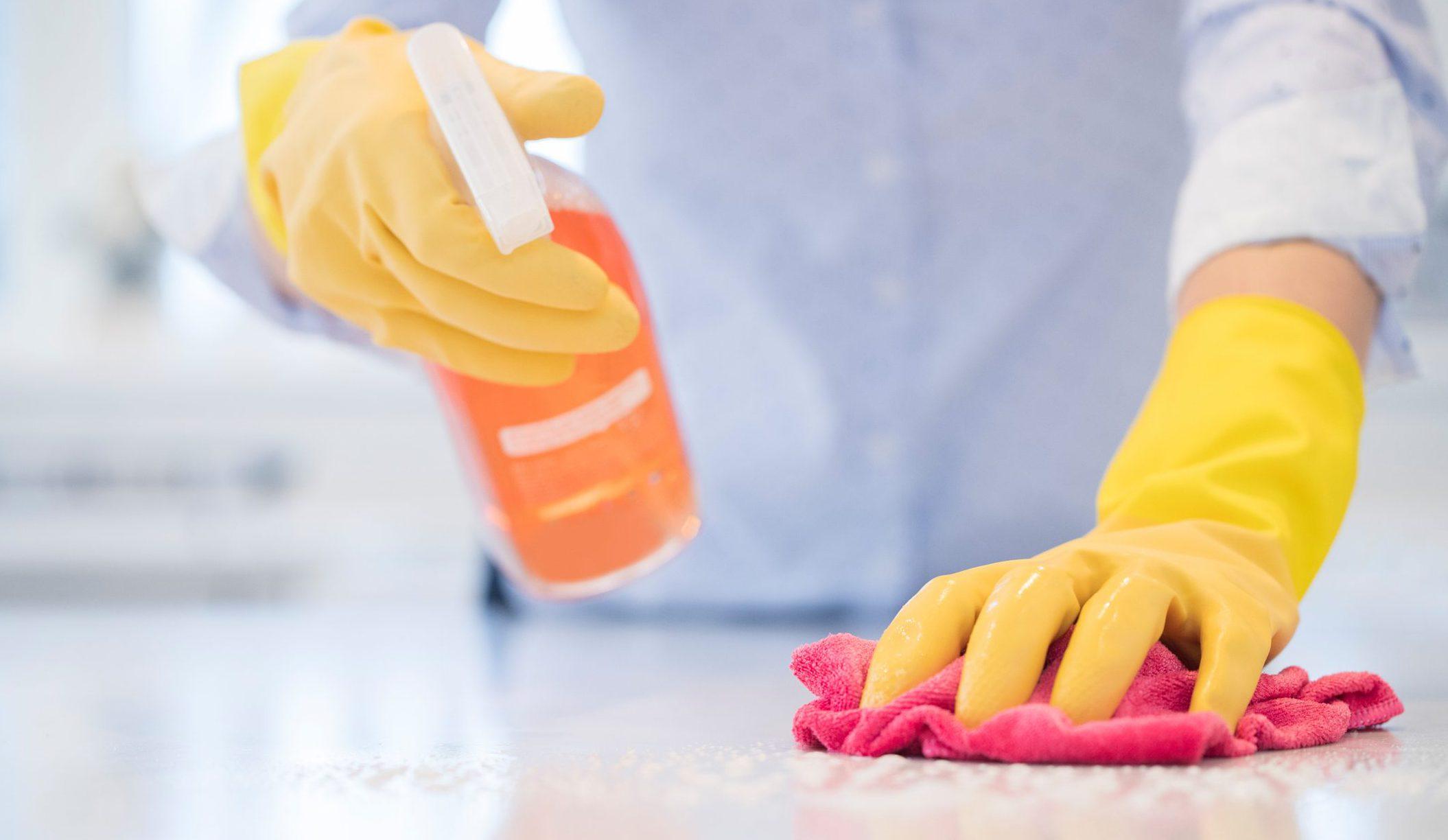- Blog Cleaning
- April 21, 2020
- How to Sanitise Your Home
How to Sanitise Your Home
One of the most relevant topics today is how to sanitise your home during a viral pandemic. As professionals we know a high level of hygiene in your living space is essential for good health. Regular sanitisation of your home can provide a good layer of protection for you and your family.
Bathroom
The bathroom is a breathing space for germs and all sorts of harmful microorganisms. In a time of world viral pandemic, you should be sanitising your bathroom and toilet daily. Always use disposable gloves, a face mask and glasses to protect main contact points and prevent infection. You could use bleach to disinfect the toilet bowl, floor and bath or shower cabin. However, bleach and bleach containing cleaning products are not recommended for people with respiratory conditions as they may cause an allergic reaction or asthma attack.
An alternative would be white vinegar or strong toilet cleaner that does not contain bleach.
Don’t forget the toilet brush and its case. Empty the water daily and add alcohol and a few drops of essential oil to kill bacteria and bring a fresh scent.
Kitchen
The other main area of your home that needs daily sanitisation is the kitchen. The floor must be mopped with a disinfectant solution. The sink and working surfaces should be wiped with anti-bacterial wipes and all cutlery, plates and pots must be washed on high temperature and with dishwashing liquid.
Living Areas
Dusting the furniture in your living room and bedrooms is also very important. Dust build-up can unlock an allergic episode for some people and if you have contracted the Coronavirus, there might be further complications.
We would advise using anti-bacterial wipes for most hard surfaces in your home, including technology, where possible. Make sure you are taking all health and safety precautions when you are disinfecting your home.
Door Handles and Radiators
Do pay special attention to your door handles, especially those on the bathroom and front doors. A lot of bacteria and germs live and breed on door handles and you can easily get infected if you unintentionally touch your face without washing your hands first.
Radiators must be regularly dusted and wiped to eliminate dirt and dust building up. Not only would this improve the hygiene levels of your home but may also bring the gas bill down. A clean radiator works much better and releases more heat.
Scientists have concluded that the virus doesn’t like temperatures higher than 26ºC and direct sunlight. While it may be impractical to make your home as hot as 26ºC, you should make sure you allow as much natural sunlight to enter your home as possible.
We hope you stay safe during these trying times and would like to remind you that our cleaning teams are still prepared to provide a safe and professional service to you.


